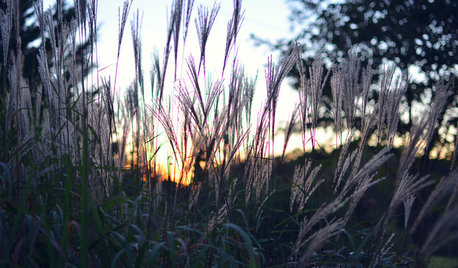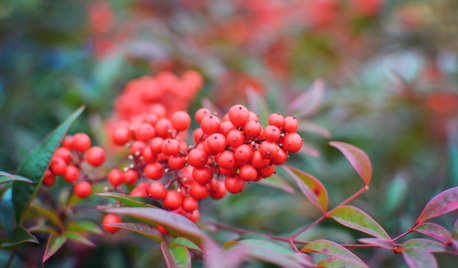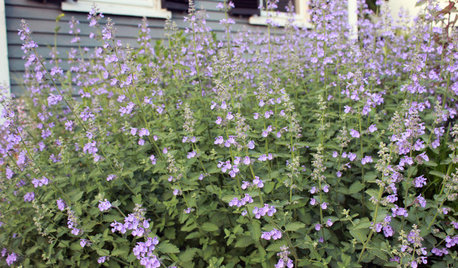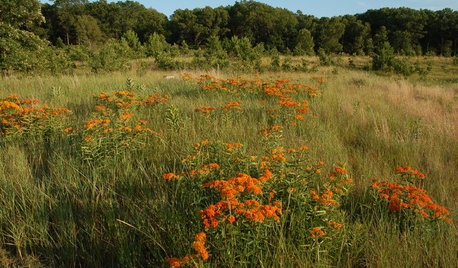Composting is done by fungi (cover your compost pile)
idaho_gardener
7 years ago
Featured Answer
Sort by:Oldest
Comments (25)
gardengal48 (PNW Z8/9)
7 years agolast modified: 7 years agodaninthedirt (USDA 9a, HZ9, CentTX, Sunset z30, Cfa)
7 years agolast modified: 7 years agoRelated Discussions
Keep my (secret) compost pile in your thoughts (wink)
Comments (13)Thanks All! By this morning, I was feeling much better after receiving your sympathic shoulders & comments! Yep, they got rules about curtains (must be showing only white to the outside), and Yep, I do live in the Country - about 1 hr past the 'burbs - takes 45 min to get anywhere - but when we moved here 9 yrs ago from 40th St & 2nd Ave Manhattan, w/2 very very busy self-employeds (I worked 70 hrs/wk then), we figured new construction townhouse would be better than an older home w/roof & furnace probs - of course, the new constrx (& affordable px) came w/a HOA. Oh well, at least I feel better now thanks to y'all! All the Best, Tree...See MoreMay 2009 What Have You Fed Your Compost PIle Today?
Comments (64)egg shells, watermelon rinds, strawberry tops, salad scraps, 1/2 roastbeef with swiss, bacon, onions, and yummy avocado on homemade sourdough bun (i almost cried), bones from Friday Night Chickenwings Extraveganza, various paper products that accompanied said feast, old receipts from cleaning out my purse, TP and PT rolls, empty 50# flour bag, lemon/lime slices, and a few gulps of beer I was unable to finish. Turned the large orchard bin adding the above ingredients together with thin layers of my nearly gone leaves from last fall and the ever-present UCGs. Topped with a good soaking (and, of course, DH's contribution of liquid gold) and am letting simmer for a few days before I turn again. The bottom is already looking and smelling like black gold!...See MoreJune 2010 : What Have You Fed Your Compost Pile Today?
Comments (36)The usual daily 1 gallon bucket of 'stuff' - UCG, egg shells, toast crusts, 1 banana peel, 2 over-ripe bananas, veggie trimmings (romaine, tomatoes, cukes, carrot/potato/onion peels), a couple of TT cardboard rolls got buried between the plants in the garden. I picked up about 30# of UCG from the coffee shop the other day and scattered it on the soil in the garden. Didn't put it in the compost as we're moving the 5 bins to landscape that area so I've been mixing unfinished and finished compost and weedy grass clippings in the cement mixer with alfalfa tea for my compost/mulch. I also picked a lot of wild yarrow, other weeds, and dead-headed flowers and layered it with this stuff. Will let it sit and heat awhile - have quite a nice big pile already and not finished yet. Letting the cement mixer do the turning for me. Lazy ol' person's way to mix compost!...See MoreCover Compost Pile?
Comments (2)Depends. How much rain do you get at any one time? Is a normal rain just enough to just moisten the material ion your compost pile or does it saturate that material and require you to repile them? The last bins I built were 4 x 4 so half a sheet of T-111 siding could be placed on as a cover to aid in keeping both rain and snow off and that allows me to better control the moisture level in the material. Many people do not cover their compost piles and do not have much of a problem with that, but plans for several compost bins do include covers. Many of the compost bins I saw in Ireland and England were covered while few I have seen on the great plains here are. There is no one answer to this question....See Moreidaho_gardener
7 years agolazy_gardens
7 years agogardengal48 (PNW Z8/9)
7 years agodaninthedirt (USDA 9a, HZ9, CentTX, Sunset z30, Cfa)
7 years agolast modified: 7 years agogardengal48 (PNW Z8/9)
7 years agofloral_uk z.8/9 SW UK
7 years agolazy_gardens
7 years agoarmoured
7 years agogardengal48 (PNW Z8/9)
7 years agogardengal48 (PNW Z8/9)
7 years agoLloyd
7 years agogardengal48 (PNW Z8/9)
7 years agoLloyd
7 years agoarmoured
7 years agoJohn Donovan
7 years agorhizo_1 (North AL) zone 7
7 years agotoxcrusadr
7 years agolast modified: 7 years agogardengal48 (PNW Z8/9)
7 years agolast modified: 7 years ago
Related Stories

GARDENING GUIDESGet on a Composting Kick (Hello, Free Fertilizer!)
Quit shelling out for pricey substitutes that aren’t even as good. Here’s how to give your soil the best while lightening your trash load
Full Story
GARDENING GUIDESMid-Atlantic Gardener's November Checklist
Winding down for winter means prepping, potting, piling and picking an indoor solution for daily compost
Full Story0

GARDENING GUIDESHouzz TV: Make a Worm Bin for Rich Soil and Happy Plants
A worm-powered compost bin that can fit under a sink turns food scraps into a powerful amendment for your garden. Here’s how to make one
Full Story
GARDENING GUIDESMid-Atlantic Gardener's January Checklist
Scatter berries while ye may, be kind to your fair-feathered friends and try a time-saving compost trick that will keep you out of the cold
Full Story
PRODUCT PICKSGuest Picks: Fall Entertaining Favorites
Make autumn feasts a piece of cake with chic compostable plates, pretty glasses, pie accessories and more
Full Story
GARDENING GUIDES5 Weed-Smothering Ground Covers
Let these landscape plants do the dirty work of choking out weeds while you sit back and enjoy the view
Full Story
LIFE9 Ways to Unclutter Your Holiday
If piles of gift wrap, boxes and extra items are weighing you down, clear the way to enjoy a serene holiday with these decluttering tips
Full Story
THE HARDWORKING HOMEClever Ways to Rethink the Linen Closet
The Hardworking Home: Get rid of those toppling piles with these ideas for organizing bedding, towels and more
Full Story
MOST POPULARMeet a Lawn Alternative That Works Wonders
Carex can replace turfgrass in any spot, is low maintenance and adjusts easily. Add its good looks and you’ve got a ground cover winner
Full Story
GARDENING GUIDESThe Art of Green Mulch
You can design a natural garden that doesn’t rely on covering your soil with wood and bark mulch
Full Story



Lloyd